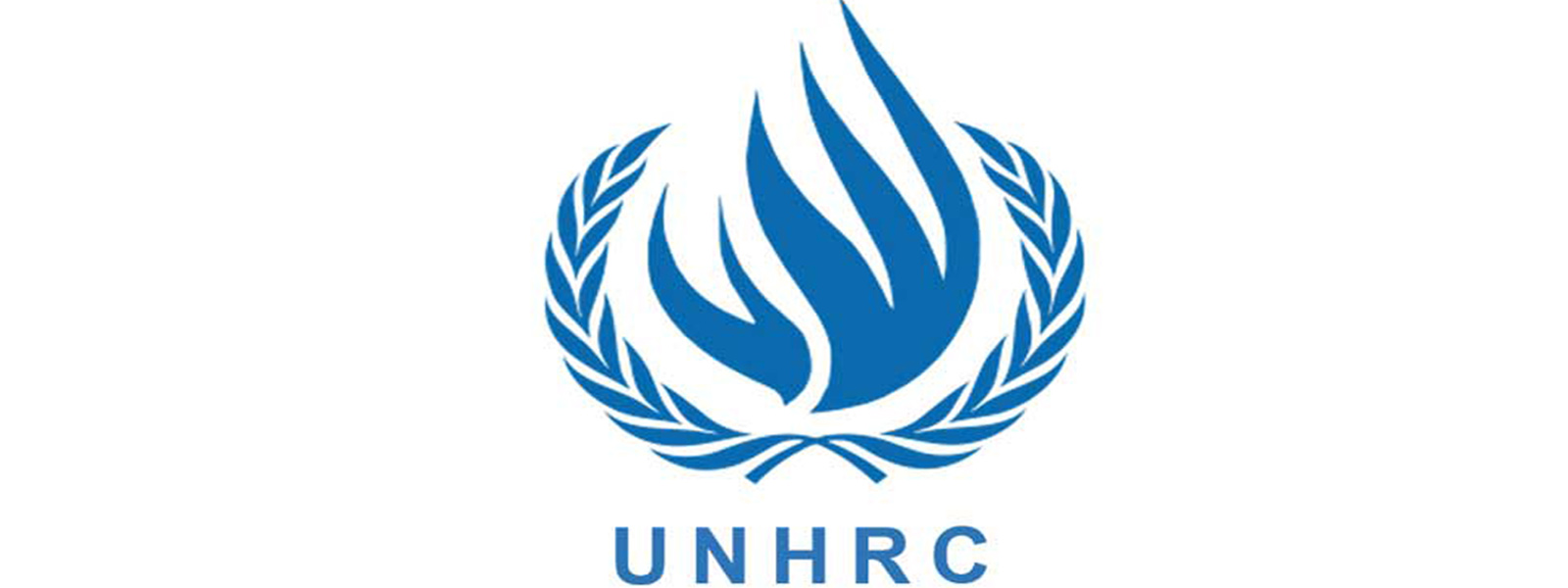.webp)

UNHRC report on Sri Lanka's progress published today
Colombo (News 1st) - In a backdrop where the United States of America has left the UNHRC calling it a biased organization, a report on Sri Lanka by the UN High Commissioner for Human Rights was made public today. The report has taken a hard stance against Sri Lanka's failure to comply with some of the commitments to the Human Rights Council. The report released today takes into account incidents that took place in Sri Lanka between 2002 and 2011.
In 2015 Resolution 30/1 was submitted to the UN by the United States of America, as it was co-sponsored by Sri Lanka along with 43 other countries, it was adopted without a vote. The core group of the resolution included delegations from the US, Britain, Montenegro, and Macedonia.
In the meantime, it should be noted that the USA, a country that is involved in several wars around the world, especially in the Middle East, pulled out of the United Nations Human Rights Council, calling it a "cesspool of political bias".
Following the adoption of the resolution 30/1, President Sirisena expressed concern that the international community remained rigid in its stand on Sri Lanka, though the government had taken adequate measures to ensure the rights of the minorities in keeping with the UNHRC resolution. In his address to the United Nations General Assembly, President Sirisena stated the need to renegotiate accountability obligations.
The report of the UN High Commissioner for Human Rights published today reviews the progress made by Sri Lanka in promoting reconciliation, accountability and human rights. The report recommends that the United Nations system continue to provide Sri Lanka with "technical and financial support for the development of transitional justice mechanisms provided that they meet international standards."
While the commissioner acknowledges the establishment of the secretariat for co-ordinating reconciliation mechanisms, office on missing persons and office for national unity, it states that the government of Sri Lanka has "lagged in the actual implementation of its commitments beyond the establishment of co-ordinating bodies."
According to the report less progress has been made in the area of criminal liability. It adds "the government has not announced any plan to create a special judicial mechanism despite the commitment it implicitly undertook when it co-sponsored Human Rights Council resolution 30/1. The report questions the ability of the criminal justice mechanism in Sri Lanka to deal with the nature of the allegations and complexity of the crimes.
The report specifically mentions a number of emblematic human rights violations to support their negative stance. The cases include
1. The disappearance of 11 youth in 2008 and 2009,
2. Death of 27 inmates during a security operation to control a riot at the Welikada Prison
3. The killing of a protester in Rathupassawella, Weliweriya
4. The murder of Nadaraja Raviraj
5. The disappearance of journalist Prageeth Eknaligoda in 2010
6. The murder of journalist Lasantha Wickramatunga.
While many local parties have been vehemently against foreign judges functioning in Sri Lanka the recommendations in the report includes the adoption of legislation to establish a hybrid court to investigate allegations of violations and abuses of international human rights laws and violations of international humanitarian law.
In the High Commissioner's recommendations to member states, he advocates for the investigation and prosecution in accordance with universal jurisdiction principles, "those allegedly responsible for such violations as torture, enforced disappearance, war crimes or crimes against humanity and explore other options to advance accountability in the absence of credible domestic process".
The report states "Sri Lanka has failed to seize the opportunity provided by the Human Rights Council to establish a trustworthy domestic mechanism to address impunity or to show, by consistent progress in emblematic cases that such a mechanism is not necessary. According to the report, a lack of progress shows that the situation of human rights in Sri Lanka should remain firmly on the agenda of the HRC.
The High Commissioner urged the council to "remain closely engaged with the government of Sri Lanka and to continue to monitor developments in the country. The UN High Commissioner for Human Rights Michelle Bachelet will formally present the report to the UN Human Rights Council on March 20 and discuss the report with member states.
Meanwhile, the Government's plan is to co-sponsor another resolution with the new core group seeking an extension on the time granted to implement the original commitments of resolution 30/1. Speaking to News 1st on the matter Sri Lankan diplomat Tamara Kunanayakam noted that Sri Lanka should not be co-sponsoring a resolution this time around. She believes that the initial commitment made in 2015 by co-sponsoring resolution 30/1 was wrong. She explains that instead of defending Sri Lanka's national interests the government went along with Washington, which had its own intentions for the region.
Other Articles
Featured News





.png )

-797936_550x300.jpg)

-793492-797918_550x300.jpg)
-797911_550x300.jpg)






-797273_550x300.jpg)


















.gif)